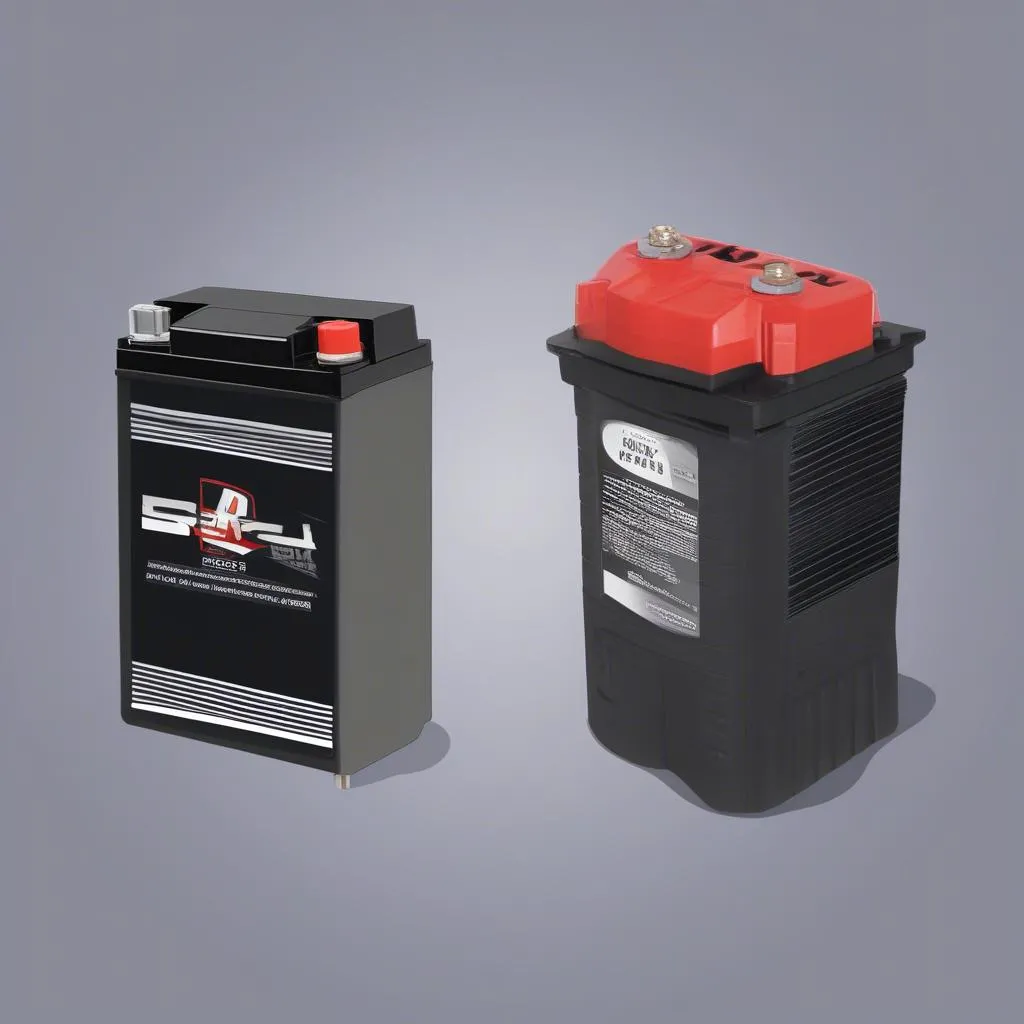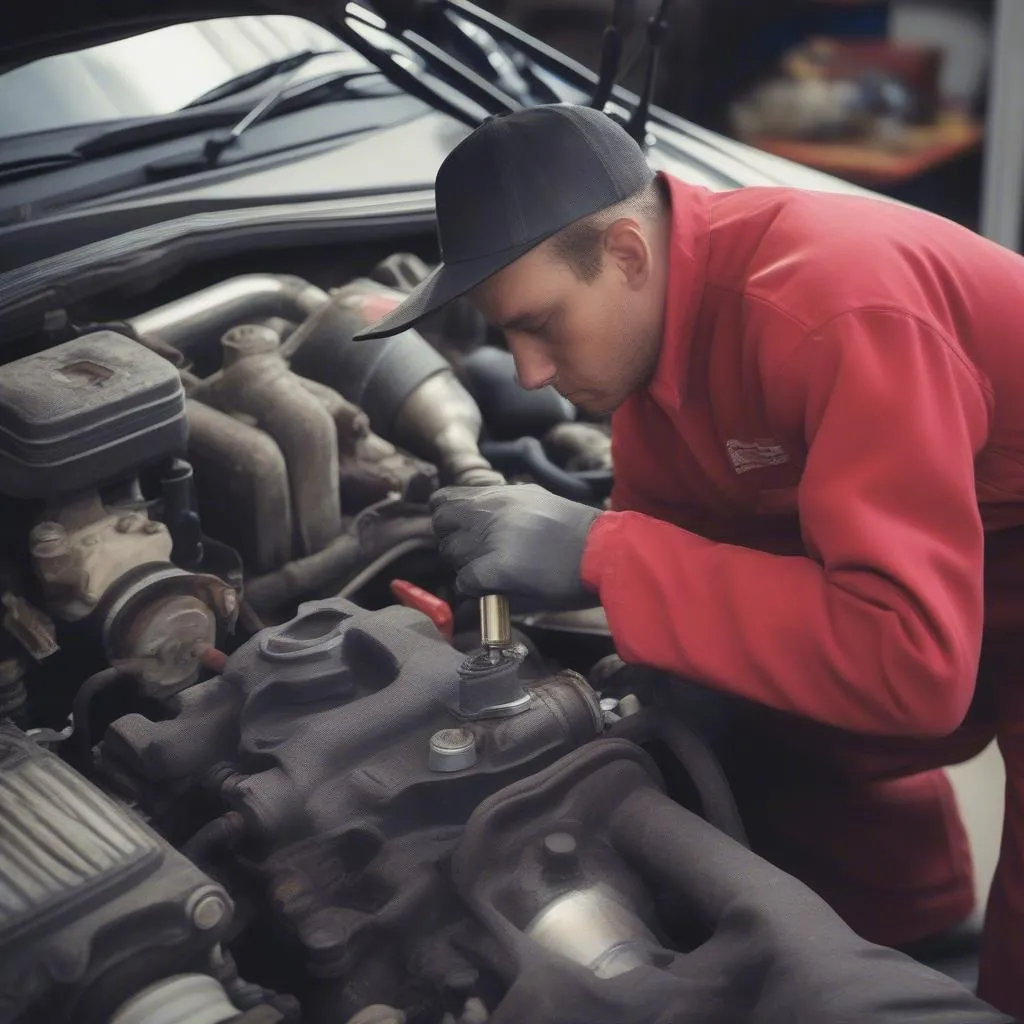Imagine this: You’re rushing to work, it’s a Monday morning, and you turn the key in your car. You hear the familiar click, but the engine doesn’t turn over. The dashboard lights come on, the radio works, but the car just won’t start. This dreaded “no crank no start but lights work” situation can be a frustrating experience for any car owner.
Understanding the Problem
The phrase “no crank no start but lights work” essentially tells us that there’s a problem with the car’s starting system. It means your car’s battery has enough power to turn on the accessories like lights, radio, and even the dashboard, but it’s not providing enough power to start the engine.
What does “No Crank” mean?
“No crank” means the starter motor doesn’t engage. The starter motor is the crucial component that spins the engine to start it. When you turn the key, the starter motor is supposed to turn the engine, but if it doesn’t engage, you won’t hear the engine start.
Why the Lights Work
The fact that the lights work indicates the battery has enough power to run the accessories. The battery is responsible for supplying power to the electrical systems of the car. The lights and dashboard are low-power consumers, so even a partially charged battery can power them.
Identifying the Culprit
1. Battery Issues: The Most Common Suspect
Many cases of “no crank no start but lights work” are caused by a weak or dead car battery. The battery powers the starter motor, which needs a significant amount of power to turn the engine. If the battery is weak, it might be able to provide enough power for the lights but not enough for the starter motor.
Common Signs of a Dead Battery:
- Slow cranking: The engine turns over slowly, but not fast enough to start.
- Dim lights: The lights seem dimmer than usual.
- Clicking sound: You hear a clicking sound when you turn the key. This indicates the starter relay is trying to engage but doesn’t have enough power.
What to Do:
- Check Battery Terminals: Ensure the battery terminals are clean and tightly connected. Corrosion can prevent the battery from supplying adequate power.
- Jump Start: If you have a jump starter or another car with a good battery, you can try jump starting your car.
- Replace the Battery: If the battery is old or damaged, it needs replacement.
2. Starter Motor Problems: When the Engine Refuses to Turn
The starter motor is responsible for spinning the engine to start it. If the starter motor is faulty, it won’t engage even if the battery has enough power.
Common Signs of a Faulty Starter:
- No clicking sound: You hear nothing when you turn the key.
- Grinding sound: You hear a grinding noise when you turn the key. This indicates the starter motor is engaging but not turning the engine.
What to Do:
- Check the Starter Motor Connection: Make sure the starter motor is properly connected to the battery and the engine.
- Test the Starter Motor: A mechanic can test the starter motor to determine if it’s faulty.
3. Wiring Issues: A Hidden Culprit
Faulty wiring can also contribute to “no crank no start but lights work.” A broken wire or a loose connection in the starting system can prevent the starter motor from receiving power.
What to Do:
- Inspect the Wiring: Check the wiring between the battery, the starter motor, and the ignition switch for any breaks, corrosion, or loose connections.
- Professional Inspection: A mechanic can help identify and repair any wiring issues.
What’s Next?
If you’re encountering “no crank no start but lights work,” the first step is to inspect your battery. Check the terminals for corrosion, try jump starting the car, and consider replacing the battery if it’s old or damaged.
If the battery is in good shape, the problem could be with the starter motor or the wiring. In this case, a mechanic can diagnose and repair the issue.
Frequently Asked Questions
What are the common causes of “no crank no start but lights work”?
The most common causes are a weak or dead battery, a faulty starter motor, and wiring issues.
Can I jump start my car if the battery is dead?
Yes, you can try jump starting your car if the battery is dead. However, if the battery is too old or damaged, jump starting it might only be a temporary fix.
How do I know if my starter motor is faulty?
If you hear a grinding noise when you turn the key, or if you don’t hear any clicking sound at all, the starter motor might be faulty. A mechanic can test the starter motor to confirm.
What if the battery is good, the starter is working, and the wiring is okay?
If all of these components are working correctly, the problem could be with the ignition switch, the neutral safety switch, or the starter relay. A mechanic can diagnose and repair these issues.
What can I do to prevent “no crank no start but lights work” in the future?
- Regular Maintenance: Maintain your car’s electrical system with regular checkups and battery maintenance.
- Use a Battery Tender: If you don’t drive your car frequently, consider using a battery tender to keep the battery charged.
- Drive Your Car Regularly: Driving your car regularly helps keep the battery charged and prevents corrosion on the terminals.
Seeking Professional Help
If you’re experiencing “no crank no start but lights work” and you’re not comfortable diagnosing and repairing the problem yourself, it’s best to seek professional help from a qualified mechanic. They have the tools and expertise to diagnose the issue and get your car back on the road quickly.
Need Help Diagnosing Your Car’s Electrical System?
Diag XCar offers a comprehensive range of diagnostic tools for European cars, including Dealer Scanner. Our team of experienced mechanics can help you identify and resolve issues related to your car’s electrical system. Contact us via WhatsApp at +84767531508 for 24/7 support.
 Dead battery vs Starter
Dead battery vs Starter
 Starter Motor Issue
Starter Motor Issue
Don’t let “no crank no start but lights work” keep you stranded. Contact us today for expert advice and solutions!